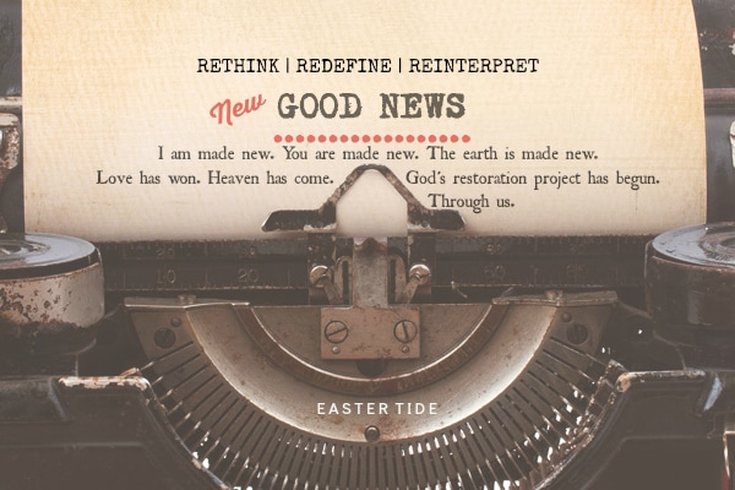I think it’s significant to note that Patrick wasn’t doing church as usual. This was a whole new way of being the church. Patrick wasn't following the typical model of the Roman Christian Church; and thankfully, he was removed far enough from the empire to experiment. For the Roman way wouldn’t have worked at all in the Irish Celtic context. There were no towns in which they could set up the usual parish. Instead there was rural sprawl with only cattle trails and small settlements and tribes spread throughout the countryside. And so Patrick did not construct a large church building and wait for the people to come to him. Imagine the folly of such an endeavor! No, St. Patrick and his missionary teams went to the people and lived among them. Likewise, is it not also folly for the American church today to construct large buildings and expect the people to come to them? For the Missio Dei calls us like Christ to GO and to LIVE AMONG the people in an incarnational way.
[Jesus] became flesh and blood, and moved into the neighborhood. [John 1:14 MSG]
St. Patrick had one thing that is most likely the greatest single thing we can learn from him. He understood the people. He had been given the gift in his years as a slave to understand the culture, the context, the language and the stories of the Irish Celts.
There is no shortcut to understanding the people. When you understand the people, you often know what to say and to do and how. When the people know that the Christians understand them, they infer that maybe Christianity’s High God understands them too. [George G. Hunter III, The Celtic Way of Evangelism]
Patrick created indigenous expressions that emerged from listening, learning and living with the people. How do we also listen to the stories of our place in such a way that we can then interpret the gospel in the language and the context of our neighbors? And I think we have to get over our fear of the “other” - including other narratives and beliefs. I think we’ve been taught in our Christian silos and ghettos to fear any story, belief or paradigm other than our own. And while we hold to the truth of our triune God, often God reveals himself in and through the stories and narratives within culture.
We see this in Acts where Paul preached at Mars Hill, explaining Jesus through their own story of the unknown god. St. Patrick and his team also did this. They knew well the Irish’s fascination with the number 3 and rhetoric triads, which then opened up a way to understand the Trinity. They knew the Irish’s love for heroes and legends that made way for them to understand the story of Jesus and the grand narrative of God. They knew the Irish’s love for nature and nature’s creatures that made way for God to be revealed in the natural world. And so there was continuity of story. God was already at work here and Patrick and his teams would live among the people, with the people and build upon what God had already revealed. And so what are the narratives of our own culture today? And how can we listen well enough and long enough to begin to live out the gospel in a way that is truly good news to our neighbors?
Go to the people.
Live among them.
Learn from them.
Love them.
Start with what they know.
Build on what they have.
[-ancient Chinese poem]
by Jessica Ketola


 RSS Feed
RSS Feed
